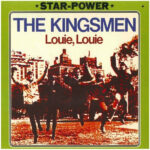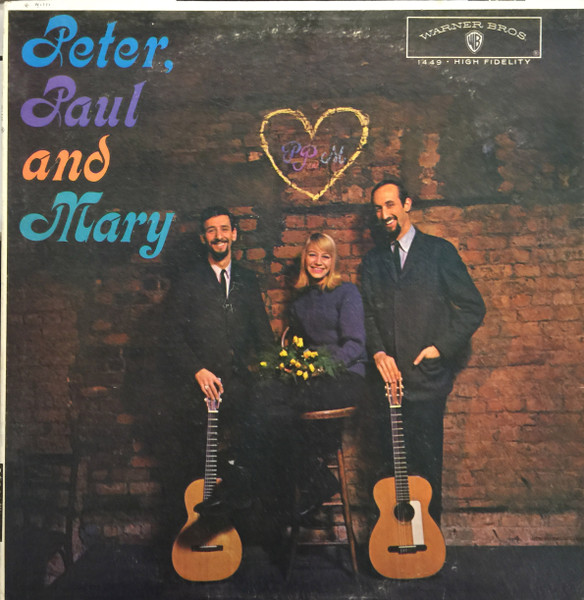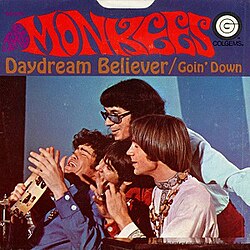 In 1963, a simple, three-chord song recorded by a relatively unknown band from Portland, Oregon, would become one of the most iconic and controversial tracks in rock history: “Louie Louie” by The Kingsmen. With its raw energy, unintelligible vocals, and infectious rhythm, the song captured the restless spirit of youth, set off a wave of moral panic, and ultimately cemented itself as a touchstone of rock ’n’ roll culture. Decades later, “Louie Louie” remains emblematic of rock’s power to inspire rebellion, provoke controversy, and endure across generations.
In 1963, a simple, three-chord song recorded by a relatively unknown band from Portland, Oregon, would become one of the most iconic and controversial tracks in rock history: “Louie Louie” by The Kingsmen. With its raw energy, unintelligible vocals, and infectious rhythm, the song captured the restless spirit of youth, set off a wave of moral panic, and ultimately cemented itself as a touchstone of rock ’n’ roll culture. Decades later, “Louie Louie” remains emblematic of rock’s power to inspire rebellion, provoke controversy, and endure across generations.
While its simplicity and imperfection might seem unremarkable on paper, “Louie Louie” represents a turning point in popular music—a moment when the spirit of rock could bypass technical polish and still ignite a cultural movement. Its journey from a garage band recording to a national phenomenon demonstrates how energy, charisma, and sheer attitude can outweigh convention and formal skill.
The Kingsmen: From Local Band to Cultural Phenomenon
The Kingsmen formed in Portland in 1959, initially performing covers and popular dance tunes at local clubs. Their breakthrough came in 1963 when they recorded “Louie Louie,” a cover of a song originally written by Richard Berry in 1955. While Berry’s version had a smooth R&B feel, The Kingsmen’s interpretation was rawer, louder, and more chaotic—a reflection of the burgeoning garage rock movement that celebrated energy over precision.
The band’s lineup at the time—Jack Ely on vocals, Mike Mitchell on guitar, Don Gallucci on keyboards, Bob Nordby on bass, and Lynn Easton on drums—captured a sound that was immediate, brash, and thrillingly imperfect. The recording session was famously rushed; Ely, whose vocals would become a signature part of the track, had a sore throat and recorded the song in a single take, shouting over a noisy, makeshift studio setup. This lack of polish would become one of the song’s defining features, giving it a raw authenticity that resonated with listeners.
Lyrics and the Mystery of the Vocals
One of the most enduring elements of “Louie Louie” is the obscured, almost unintelligible vocals delivered by Jack Ely. The lyrics tell a simple story of a sailor longing to return home to his lover, with lines like:
“Louie Louie, oh no, me gotta go
Yeah yeah yeah yeah yeah”
Yet the delivery is so garbled that fans, parents, and even government officials struggled to decipher the words, sparking decades of speculation about hidden messages. This phenomenon, in which a song’s meaning became the subject of debate and intrigue, contributed to the track’s notoriety and mystique.
The ambiguity of Ely’s vocal performance turned “Louie Louie” into a participatory experience—listeners filled in their own interpretations, imagined scandalous meanings, and debated over every syllable. The result was a song that transcended its simple narrative, transforming into a cultural puzzle that encouraged engagement and discussion.
Musical Composition and Style
Musically, “Louie Louie” is a study in simplicity and groove. The song revolves around a three-chord progression—one of the most basic in rock history—but the performance infuses these chords with energy, urgency, and a distinctive swing. The rhythm section drives a persistent, almost hypnotic beat, while the guitar and keyboards add texture without complicating the structure.
Jack Ely’s vocal delivery, strained and urgent, rides atop this rhythmic foundation, creating a sense of immediacy and excitement. The imperfections—slurred enunciation, off-kilter timing, and occasional instrumental mistakes—enhance the song’s authenticity, making it feel alive and spontaneous rather than carefully engineered. In essence, the track embodies the DIY ethos of garage rock: music that is raw, accessible, and emotionally compelling.
The Controversy and FBI Investigation
One of the most fascinating aspects of “Louie Louie” is the cultural firestorm it ignited. In 1964, as the song gained national popularity, rumors began to circulate that the lyrics contained obscene content. Parents, educators, and religious groups decried the song as morally corrupting, leading to protests and calls for censorship.
The controversy reached its peak when the FBI launched an investigation into the song, attempting to determine whether the lyrics were indecent. After reviewing the track for over two years, the agency concluded that the lyrics were unintelligible and no actionable offense could be determined. Despite—or perhaps because of—this investigation, the song’s notoriety grew, solidifying its status as a rebellious anthem.
This episode also highlights the social power of rock music in the early 1960s. “Louie Louie” wasn’t just a hit; it was a cultural event that challenged authority, questioned censorship, and reflected the anxieties and excitement of a generation coming of age in a rapidly changing society.
Chart Success and Commercial Impact
Despite—or because of—the controversy, “Louie Louie” became a commercial success. The single peaked at number two on the Billboard Hot 100 and remained a staple of radio airplay, driving record sales and solidifying The Kingsmen’s place in rock history. Its success also demonstrated the commercial viability of garage rock, influencing countless bands to embrace a raw, energetic sound that prioritized excitement over technical precision.
The song’s popularity extended beyond the United States, reaching international audiences and inspiring cover versions, parodies, and homages. Its simple, catchy structure made it an ideal template for bands looking to connect with audiences through energy and immediacy rather than complex arrangements.
Live Performances and Enduring Appeal
Live performances of “Louie Louie” became legendary for their energy, audience participation, and occasional chaos. The song’s repetitive structure and driving beat make it an ideal anthem for crowd engagement, with fans shouting the chorus, stomping along to the rhythm, and joining in the celebration of rock’s raw power.
Over the decades, The Kingsmen have continued to perform the track, often as the climactic moment of a set, reminding audiences why the song endures. Its accessibility—musicians of any skill level can attempt it—and its energy make it a timeless favorite for live shows, garage bands, and cultural celebrations alike.
Influence and Legacy
“Louie Louie” has influenced generations of musicians, from garage rock revivalists to punk bands and beyond. Its emphasis on energy over polish, accessibility over virtuosity, and fun over sophistication set a precedent for countless acts seeking to capture the raw excitement of rock performance. Bands like The Stooges, The Ramones, and later garage-rock revivalists drew inspiration from the song’s simplicity, spirit, and rebellious attitude.
Beyond music, the song has become a cultural touchstone. It has been referenced in films, television, and literature, symbolizing youthful rebellion, DIY creativity, and the subversive potential of popular culture. Its legacy is not just in notes and chords but in its demonstration that music can ignite conversation, provoke authority, and endure in the collective consciousness for decades.
Why ‘Louie Louie’ Endures
The enduring appeal of “Louie Louie” lies in its combination of simplicity, raw energy, and cultural mystique. It is a song that anyone can play, sing along to, or adapt, yet it carries with it a rich history of controversy, rebellion, and creative influence. The track is a reminder that rock music does not need to be complicated to be impactful; authenticity, attitude, and emotional resonance can outweigh technical skill and polish.
Additionally, the song’s ambiguity—both lyrical and performative—invites listener engagement. Each generation of fans discovers something new in its imperfect vocals, driving rhythm, and infectious chorus. It is a song that grows with its audience, offering both nostalgia and fresh discovery for those willing to ride its relentless beat.
Conclusion: The Unstoppable Beat of Rock ‘n’ Roll
The Kingsmen’s “Louie Louie” is more than just a hit single; it is a phenomenon, a cultural milestone, and a musical touchstone. Its combination of raw energy, simple but infectious melody, and cultural controversy created a perfect storm that has allowed the song to endure for decades. It reminds us that music can be both fun and meaningful, chaotic and unifying, simple and revolutionary.
From its humble garage-rock origins to its place in the pantheon of classic rock, “Louie Louie” continues to inspire musicians, energize audiences, and capture the restless spirit of youth. Its impact is measured not only in chart success but in cultural influence, audience engagement, and the countless lives it has touched with its unmistakable, unstoppable beat.
With its raw power, irresistible rhythm, and enduring mystique, ‘Louie Louie’ stands as a monument to the spirit of rock ’n’ roll—a song that shook the nation and continues to ride through the hearts of listeners everywhere.


